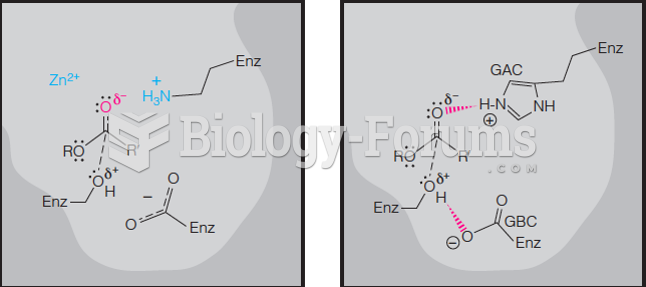|
|
|
Anesthesia awareness is a potentially disturbing adverse effect wherein patients who have been paralyzed with muscle relaxants may awaken. They may be aware of their surroundings but unable to communicate or move. Neurologic monitoring equipment that helps to more closely check the patient's anesthesia stages is now available to avoid the occurrence of anesthesia awareness.
Hyperthyroidism leads to an increased rate of metabolism and affects about 1% of women but only 0.1% of men. For most people, this increased metabolic rate causes the thyroid gland to become enlarged (known as a goiter).
Atropine, along with scopolamine and hyoscyamine, is found in the Datura stramonium plant, which gives hallucinogenic effects and is also known as locoweed.
If you could remove all of your skin, it would weigh up to 5 pounds.
Medication errors are three times higher among children and infants than with adults.
 Comparison of Principles of Abstinence-Only and Comprehensive Sex Education in the Public School Sys
Comparison of Principles of Abstinence-Only and Comprehensive Sex Education in the Public School Sys
 Participant observation, participating and observing in a research setting, is usually supplemented ...
Participant observation, participating and observing in a research setting, is usually supplemented ...





